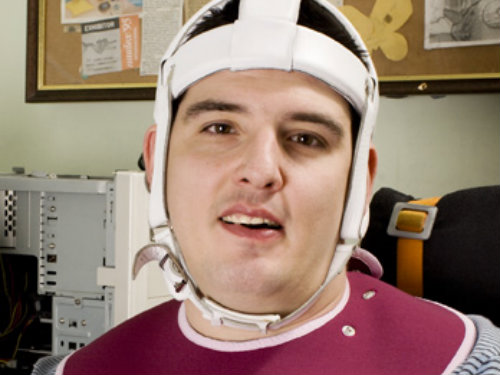
By Simon Stevens
It’s 10 years since I started teaching social work and other students as a service user, mainly at Coventry and Warwick universities.
Over the years I have been involved in all aspects of the courses, from assisting with admissions to final-term assessments.
None of this has been full time, but I have been involved over the years to develop specific lectures, such as on the social model, as well as social user involvement.
With 20 years’ experience of using services behind me, I see myself as a professional as well as an user, and so have a direct and honest teaching style where students get the opportunity to ask the questions they may not be able to ask on placement.
The feedback time after time from the students is that they find the interaction invaluable since hearing it directly from users will always carry more weight.
The fact I also get paid is also great as I feel valued. Students and users alike have benefited from the improvements made by the General Social Care Council to social work teaching in the 2000s, which ensured service user involvement became a central part of course design and delivery by providing funding for involvement initiatives.
In Coventry, we have also benefited from the creation of UNTRAP almost 10 years ago.
UNTRAP acts as a clearing house, connecting service users and patients with opportunities in teaching and research within university health and social care courses at Coventry and Warwick.
UNTRAP stands for University Teaching and Research Action Partnership and has, over the last decade, supported the involvement of many patients, service users and carers in teaching, research and many other opportunities.
It does not act as or claim to be a user-led organisation, nor does it represent users, but it enables individual users to participate in activities as themselves.
UNTRAP also acts as a regulator, ensuring academics who use the service pay individuals for their time appropriately and respect individuals properly.
It also supports new users and patients who wish to get involved with training and other support. UNTRAP remains a pocket of good practice and one I am proud to be a part of, in the same way that I am proud to be assisting with the development of social work students.
I have sat on big committees discussing major policies including workforce development, and this is fantastic, but it is also nice to balance this by actually making a real difference to the workforce of the future.
While students may only interact with me for a few hours throughout their course, they may observe and remember something I have said that will make the difference between a communication breakdown and a successful outcome in a situation they may encounter in the future.
I therefore look forward to at least another 10 years teaching and making a difference, however small.
- Simon Stevens is a independent disability issues consultant and trainer.

 ‘I wouldn’t be here without them’: the power of workplace friendships in social work
‘I wouldn’t be here without them’: the power of workplace friendships in social work 
 Facebook
Facebook X
X LinkedIn
LinkedIn Instagram
Instagram
Comments are closed.